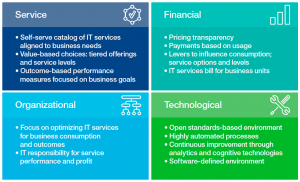Generic
Cognitive technology increases employee expertise
04/07/2017 | Written by: Think Blog Editor
Categorized: Generic
Share this post:
Cognitive technologies are completely revolutionizing the business these days. They are ‘disruptive enablers’ that provide organizations deeper client involvement, increase employees’ expertise and enable employees to discover new opportunities. Cognitive technology truly makes organizations more intelligent thanks to simple APIs.
Cognitive technology produces a higher level of intelligence in general within a digital organization. Organizations are now able to extract information from large quantities of unstructured data and thereby increase the expertise of virtually every employee. This not only helps an enterprise to continually learn and modify itself; it also helps the organization better anticipate market demands. However, the best news is that in many cases this technology is readily available as an API on a cloud platform.
Possibilities
Managers may ask themselves: how cognitive is my organization? And how does this help me? I have formulated a few questions specifically for such managers to help them inventory the available possibilities.
- To what extentdoes theenterprisedependontraditional computing (based onlogical-driven rules) andonorganizedinformation? Ordoes your organizationalready work with cognitivesystemsthatlearnsystematically andare notdependenton rules?
- To what extentarethesystemsable to process diverseandvarieddata?
- Do the systems understandunstructuredinformation, such asphotos, naturallanguageandsounds, text documents, e-mails, tweets, magazines, blogs, figures, audio and videos?
- Canthesystemscontinually learn and collect the knowledgedistributed throughout theorganizationso as to enable you to immediately make moreinformeddecisions?
- Canemployeescommunicate withthesystemsto resolve internalproblemsandto offer thecustomerauniqueuser experience?
Every day I see and hear great stories from companies who are a step ahead of the competition because they utilize cognitive technologies. This makes it possible for them to shorten the cycles between what they can learn from data and what concrete action they should take based on this. The result is a cognitive enterprise that can think quickly and collectively and can adequately respond to market changes.
Practical exercises
The Flemish Job Placement and Professional Training Service (VDAB) is a good example of how this technology can offer added value. Utilizing cognitive technology, this service is able to better match open vacancies and younger job seekers. For ten weeks, different data sets from the last four years were analyzed. The objective was to build a predictive model, which could better assist the largest group of job seekers (young people between the ages of 18 and 25) in getting jobs. The individual factors that affect the work situation for a specific individual were also inventoried, to personalize the approach. The results exceeded expectations. Thanks to this detailed, accurate information, advisors were able to significantly reduce the time it takes to find employment for a younger job seeker. Another example is Woodside Energy, Australia’s largest oil and gas company. The company built an intelligent system that enables users to gain insights from unstructured and historical data, which is traditionally contained in all sorts of reports – 38,000 in total – within just a few seconds. Woodside used an API that is available on the cloud platform of a cognitive system to create an architecture with which the engineers on the drilling platform could pose any question they wished. The system then immediately provided an answer, including supplemental information the engineers may not even have thought of at the time. The cognitive system had processed 30 years of experience and made it available via a simple question and answer application. On average, employees got answers to their question 75 per cent quicker than before.

Conclusion
Cognitive systems put organizations in the here and now. More than ever managers must answer the most important question a company must ask itself every day: how can we create added value? With digital systems and cognitive intelligence organizations get not one, but several answers to that important question. Great opportunities are in the offing.
Automate work and accelerate business growth
Many companies need help to navigate the rapid changes that define today’s business environment. To improve their responsiveness and flexibility, they are looking for new ways of conducting business, rethinking their processes, and investing in digital transformation projects to increase the robustness of their operations. They rely on business automation technologies to cut out repetitive […]
Sustainability and the technologies enabling the transition
Creating a sustainable future demands significant technological innovation to decarbonize society, restore biodiversity and ecosystem health, foster thriving oceans for sustenance and economic growth, remove atmospheric carbon, transition to sustainable agriculture, and advance eco-friendly cities that align with our vision for a better future. Generative AI has achieved much in recent years and now surpasses […]
Technology in action at Think Summit 2021
Covid 19, the energy transition and climate change require business agility… right away! Organizations that are slowly starting their digital transformation are irrevocably overtaken by competitors: companies that can quickly realize new, sustainable business models with a remote workforce. How can organizations leverage innovations such as AI, machine learning and hybrid cloud to make […]



